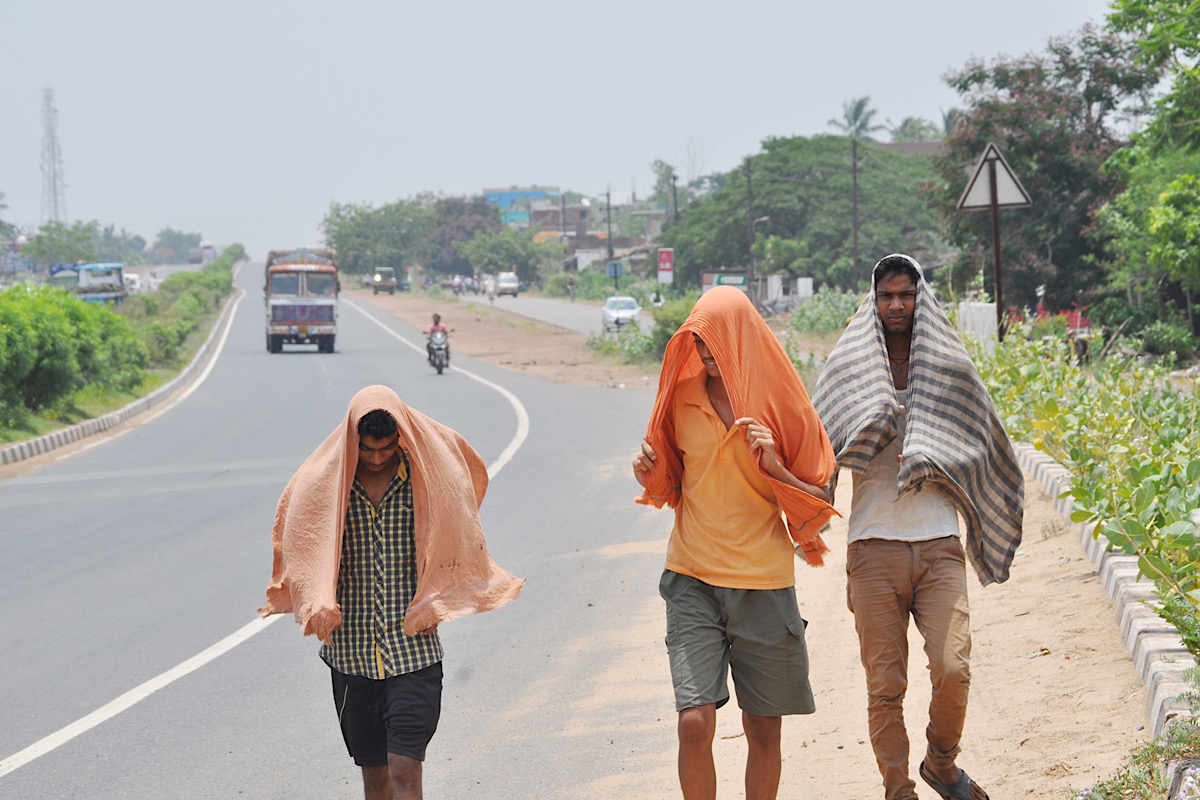In a proactive move to combat the heat wave gripping the state, the Uttar Pradesh government has prepared a comprehensive action plan to protect people from its severity and also provide relief during emergencies.
Under this, the appointment of nodal officers has been mandated at the state, district, and municipal levels.
Advertisement
Additionally, stringent measures include monitoring of heat waves at the district and civic level through video conferencing.
With a focus on safeguarding citizens from the sweltering temperatures, the action plan will be implemented effectively by following the instructions received from the Government of India, officials here on Tuesday.
Instructions have been issued by the Urban Development Department to implement the action plan on a priority basis for the management of heatwave as well as the diseases and ill effects arising from it.
As per the instructions, wide publicity should be done regarding dos and don’ts during the heatwave and warnings should be issued through mobile messages/Whatsapp regarding its ill effect. Additionally, proper arrangements should be made for ORS packets at health centers and Anganwadi centers.
The instructions also include changes in the working hours of schools, laborers, and workers and guidelines for preventing deaths due to sunstroke.
It has also been mandated in the instructions to designate temples, community halls, and malls as cooling centers. Arrangements for water and buttermilk should be made at public places by NGOs, community groups and individuals. Adequate shelter arrangements will be ensured in urban bodies to protect people from heat.
In addition to this, all necessary measures to ease impact of heatwave should be widely disseminated among the public in extreme temperature conditions. A public awareness campaign should also be conducted regarding prevention and treatment of heat related illnesses. Weather forecasts and temperature will be displayed at busy places.
Furthermore, special campaigns for water supply will be conducted by urban bodies to keep all water pumps in working condition and to repair and restart those which are not working. Repairing of pipelines supplying water from main pipelines to residential areas will be done to ensure clean water supply.
Additionally, chlorination will be carried out periodically for water purification. Samples of water will be collected at user-end points regularly for bacteriological and virological testing to monitor the quality of drinking water.
In areas where drinking water supply is from hand pumps, distribution of chlorine tablets in appropriate quantities will be done as per the requirement. In areas affected by drinking water scarcity, water supply will be arranged through tankers. Inspection of sewer lines and water pipelines will be conducted in urban areas, and any breakage or leakage found in sewer or water pipelines will be promptly repaired.
Until the leakage is fixed, alternative arrangements will be made to ensure safe drinking water supply in the affected area. Additionally, appropriate veterinary medicine and provision of drinking water will be ensured for animals at shelter locations.
The instructions also include arrangements for shade and drinking water at bus stations and terminals. Provision of drinking water will be ensured for pilgrims at temples and other religious places. Areas like cities, hamlets, and slums expected to be most affected by heat wave will be identified, and arrangement for drinking water made there.
Additionally, proper shade will be arranged in open parks. Water will be sprinkled regularly on the streets. Appropriate planning should be prepared for the construction of new buildings in urban areas. Construction work for green buildings will be carried out while adhering to environmental and building codes.









